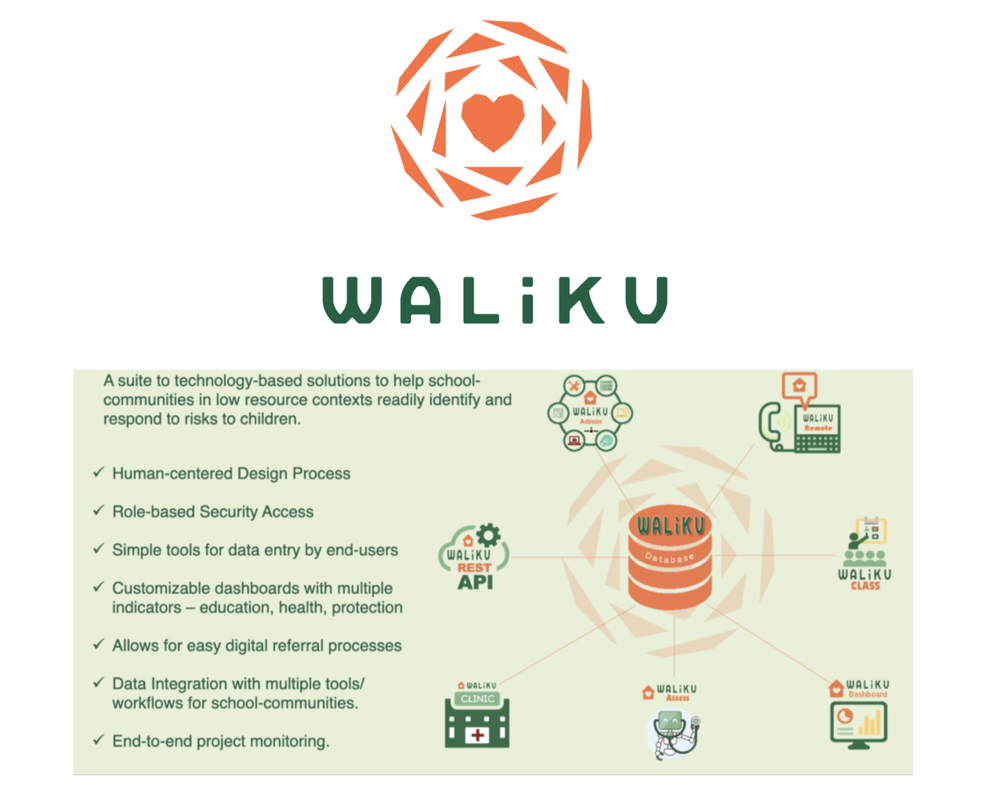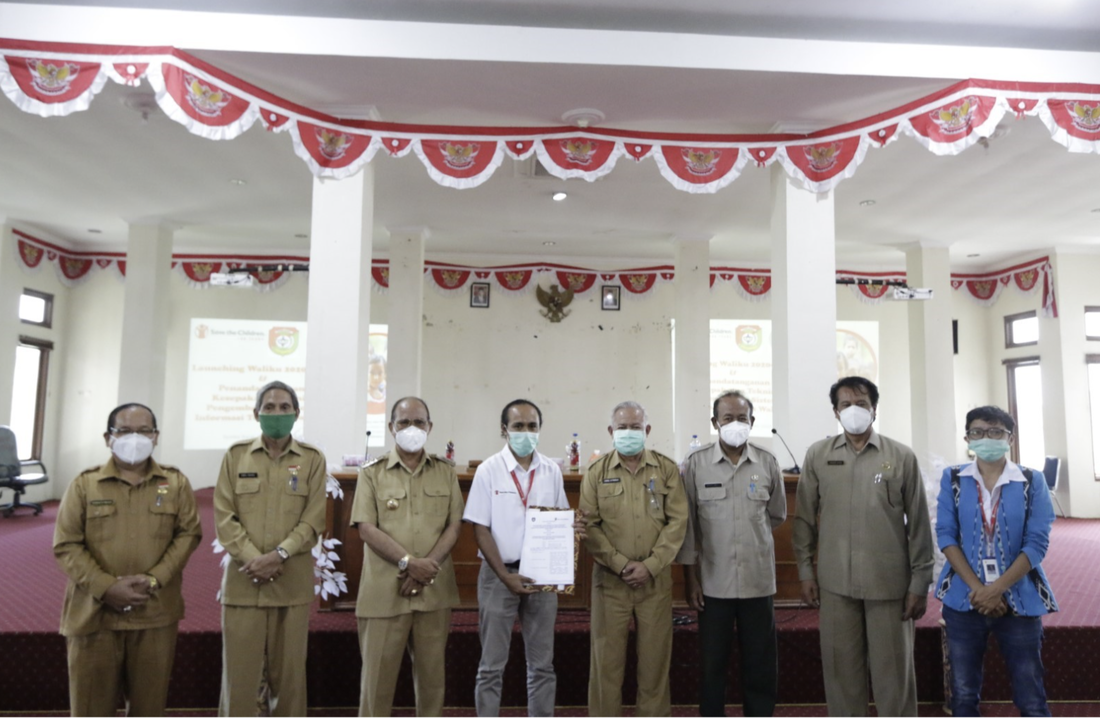|
Welcome to Waliku’s April 2024 newsletter, where we recap events from the end of last year and quarter one! Waliku's education data capture and analytics support currently reaches 20 projects across 14 countries during the period. This issue covers the following updates:
To learn more about our updates, click on the button below! Welcome to the third edition of the Waliku newsletter for 2023! We are very excited to bring you exciting news of our work from the past three months! Here are the highlights of the news in Waliku:
Explore further about our updates by clicking the button below! Welcome to Waliku’s second quarter newsletter for 2023! In this edition, we are thrilled to bring you exciting updates and highlights from our work from April through June. We supported projects across 18 countries with digital data capture tools and analytics on key metrics related to education and wellbeing. Here are the featured highlights:
Discover more about our updates by clicking on the button below! Greetings! We are pleased to share our first quarter updates with you! From January to March 2023, the Waliku team supported projects across 17 countries with digital data capture tools and analytics on their key metrics.
Discover more about our updates by clicking on the button below! During October to December 2022, Waliku and our partner projects achieved remarkable progress in our work with school-communities. As we get well into 2023, we look back at this period to share some highlights of what we achieved and what it means for us this year.
Read more about our progress by clicking on the button below! Waliku is back to share some exciting developments in our work for the most marginalized and vulnerable children across the globe. We are grateful to our partner programs, technical collaborators, and supporters for furthering our common agenda for inclusive, and equitable education for all children.
Exciting Highlights:
Click on the button below to learn more about our progress in the last three months! Waliku continues to be a Save the Children global team that provides digital solutions for learner education and well-being management.
Our suite of in-house and third-party software are designed to meet the needs of projects and users. We set these up to best fit a project context, train trainers, provide implementation helpdesk services, and data analytics for knowledge management. In the February-June 2022 period, we made great strides with product upgrades, expansion of support to projects, as well as partnerships with organizations that share our commitment to ensuring equitable education, health and protection for all children. Find out the details by clicking on the button below! At Waliku we always believe in building a strong foundation for sustainable intervention and behaviour change. So here are a few milestones we were able to hit in 2021:
Find out more about our big moments and exciting things to come on 2022 by clicking on the button below! Since 2021, Waliku is both a Save the Children technical team and a set of tools for student education and wellbeing management. Any Save the Children or development partner project can utilize the Waliku team’s products and services to meet their data requirements for better project and school-level decision making.
Waliku’s journey commenced as an innovative idea by Save the Children in 2017, followed by a proof-of-concept study and pilot project in West Sumba, Indonesia during 2018-2020. During this period, the Waliku team learned many lessons that helped define its product and service offering. First that digital technology should be immediately relevant to the end user and should simplify their work. Waliku designed its user interface for the needs of the Indonesian teachers and administrators, and reduced their workload with attendance reports by using their formats and automating the process. As a result, daily usage of Waliku was 81% across 21 pilot schools in its second year. Second, that data from the digital tool should provide insights that inspires users to consistently use the solution. Waliku provides school administrators and teachers with immediate information on chronic and severe chronic absentees, which they can use for their follow up with individual students at risk of dropout. Third, that tools that can be used as modules better meet the specific needs of school-communities. As a result, our solutions now differentiate to include Waliku Class (student absence management), Waliku Admin (school administration), Waliku Assess (school clinic assessments), Waliku Clinic (community clinics) and Waliku Dashboard (district and project monitoring). Lastly, that preferred tools and technology and customizations should be considered when scoping the needs of school-communities. As a result, the Waliku team has started to add many configurable features in its tools. The application is now multi-lingual, and simpler technology such as automated phone calls and SMS, and Excel can be used with Waliku to capture student data. Also, we do not limit our support to Waliku products alone. We provide implementation guidance to projects that may choose to use other digital products. Two examples of this include our support to Open EMIS pilots in Lebanon and Colombia. Waliku has become an important part of safe return to schools. Global guidelines recommend digital tools for schools and local school districts to readily recognise re-enrolment levels and track attendance till to ensure students are returning to school.
In Indonesia, the scale-up continues in West Sumba, as another Memorandum of Understanding (MOU) is signed with the district education office to use Waliku in all primary schools in its six subdistricts over the next two years. At the same time, Waliku will also be used in junior high schools in Bandung district, West Java. This is to capture the remote online learning that is taking place across schools, and to identify those students who are unable to attend online lessons due to barriers of access to digital devices or network connectivity and provide them with print materials. Waliku’s expanding outreach can be attributed to the realisation of the importance of understanding and following up on student absences. Save the Children will soon introduce Waliku in its Catch Up Clubs in Uganda. These clubs are community learning spaces for children of primary school-age to catch up on their literacy skills. Community facilitators will run daily sessions for a period of 10-13 weeks and use Waliku to assess reading levels as well as track attendance of children. In Guatemala, attendance is a key metric for Save the Children’s food for education project which reaches many thousands of children across several municipalities for cooked meals and food rations during COVID. With generous giving by an individual philanthropist, the Waliku team is able to support the Guatemala project to digitize its attendance taking process for over 8000 children. Using Waliku will help the project identify if the food intervention is maintaining student engagement. |
THE LATESTNews and updates, as we work with partners to realize our shared vision of every child attaining their right to education and well-being Archives
April 2024
|




